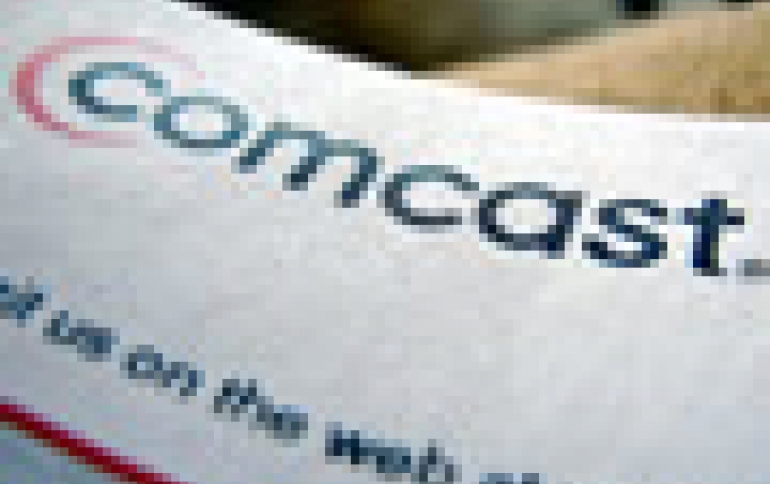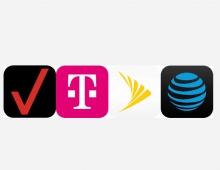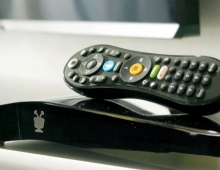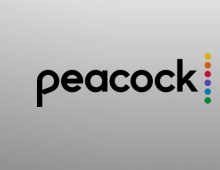
Group Opposes Comcast-NBC Universal Deal
A group called the Coalition for Competition in Media launched a campaign on Thursday opposing the purchase of entertainment titan NBC Universal by cable television giant Comcast.
The group is made up of a wide array of public interest groups and private organizations that oppose the merger of Comcast and NBC-Universal, as proposed, "because of the serious threats it poses to consumers and fair competition in the media market."
The Coalition urges the FCC and Justice Department to consider the far-reaching implications of this deal on consumers, the health of U.S. media, and the economy, and asks those agencies to use their authority to protect the public interest.
The coalition includes the Bloomberg news agency, the National Organization for Women, the Writers Guild of America, the National Consumers League, the National Telecommunications Cooperative Association, the National Coalition of African American Owned Media and others.
The FCC and the Justice Department are currently reviewing the deal which calls for General Electric to sell 51 percent of its stake in NBC Universal to Comcast.
The acquisition of NBC Universal would give Comcast, the largest US cable television and high-speed broadband provider, a media and entertainment empire to rival that of The Walt Disney Co.
"Comcast wants to acquire a controlling stake of NBC-Universal in a deal that would give Comcast unprecedented power nationally and in local cable markets around the country," the group says.
"Under the proposal, Comcast would not just be adding top-tier content providers like USA, E!, and the Weather Channel, as well as cable news providers CNBC and MSNBC to its already large cable empire. Comcast would also own the local NBC station, the local Telemundo station, the dominant regional sports network or all three in eleven of America?s largest media markets where Comcast is already the dominant provider of cable television and broadband Internet service." So what does this mean for viewers like you?
"Imagine you live in Chicago. If this deal goes forward as proposed, you and your fellow Chicagoland residents will wake up one day to find Comcast is no longer just the dominant high-speed internet and cable company. Now, Comcast also owns WMAQ, your local NBC affiliate. It owns Telemundo WSNS, your local Spanish-language broadcaster. It owns Chicago Sportsnet, home of the Cubs, White Sox, Bulls and your Stanley Cup Champion Blackhawks. This one company now also owns dozens of cable channels across the dial and websites across the internet . It also owns the Universal movies you see in your cineplex and the movies you download from the Universal catalogue," the groups added.
"That means if you are a local business that wants to advertise, you have to do business with Comcast and pay the prices Comcast demands. If you are a cable customer, you either pay Comcast?s prices or risk losing content that Comcast could make exclusive. If you surf the internet, you could find that if you?re not subscribed to a particular Comcast package, content could be blocked or only be accessible with additional fees. And that?s not to mention the fact that independent programmers and competitor video providers would struggle to compete with such a powerful market force, meaning less choice for everyone."
The Coalition urges the FCC and Justice Department to consider the far-reaching implications of this deal on consumers, the health of U.S. media, and the economy, and asks those agencies to use their authority to protect the public interest.
The coalition includes the Bloomberg news agency, the National Organization for Women, the Writers Guild of America, the National Consumers League, the National Telecommunications Cooperative Association, the National Coalition of African American Owned Media and others.
The FCC and the Justice Department are currently reviewing the deal which calls for General Electric to sell 51 percent of its stake in NBC Universal to Comcast.
The acquisition of NBC Universal would give Comcast, the largest US cable television and high-speed broadband provider, a media and entertainment empire to rival that of The Walt Disney Co.
"Comcast wants to acquire a controlling stake of NBC-Universal in a deal that would give Comcast unprecedented power nationally and in local cable markets around the country," the group says.
"Under the proposal, Comcast would not just be adding top-tier content providers like USA, E!, and the Weather Channel, as well as cable news providers CNBC and MSNBC to its already large cable empire. Comcast would also own the local NBC station, the local Telemundo station, the dominant regional sports network or all three in eleven of America?s largest media markets where Comcast is already the dominant provider of cable television and broadband Internet service." So what does this mean for viewers like you?
"Imagine you live in Chicago. If this deal goes forward as proposed, you and your fellow Chicagoland residents will wake up one day to find Comcast is no longer just the dominant high-speed internet and cable company. Now, Comcast also owns WMAQ, your local NBC affiliate. It owns Telemundo WSNS, your local Spanish-language broadcaster. It owns Chicago Sportsnet, home of the Cubs, White Sox, Bulls and your Stanley Cup Champion Blackhawks. This one company now also owns dozens of cable channels across the dial and websites across the internet . It also owns the Universal movies you see in your cineplex and the movies you download from the Universal catalogue," the groups added.
"That means if you are a local business that wants to advertise, you have to do business with Comcast and pay the prices Comcast demands. If you are a cable customer, you either pay Comcast?s prices or risk losing content that Comcast could make exclusive. If you surf the internet, you could find that if you?re not subscribed to a particular Comcast package, content could be blocked or only be accessible with additional fees. And that?s not to mention the fact that independent programmers and competitor video providers would struggle to compete with such a powerful market force, meaning less choice for everyone."





















